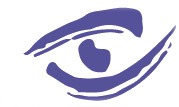At Colorado Springs Eyecare, we often meet parents wondering if their child’s struggles at school or on the playground might be vision-related. Pediatric eye exams help catch issues early, but how do you know when it’s time to schedule one.
Let's explore common signs that your child may need an eye exam – and what parents in Colorado Springs should know.
When Should Kids Get an Eye Exam?
Many parents wait until their child complains about blurry vision – but some eye issues don’t have obvious symptoms. That’s why Colorado Springs Eyecare recommends routine eye exams even for kids who seem to be seeing fine.
For most children, the first eye exam is usually done between ages three and five to check for early concerns like lazy eye, crossed eyes, or focusing problems. However, some kids should be seen sooner – especially if they were born prematurely, have developmental conditions, or if parents notice signs like a constant eye turn, a white pupil, unusual eye movements (nystagmus), or trouble tracking faces by three months of age.
After the preschool years, school-age kids benefit from annual exams to monitor vision changes as they grow and to support healthy development.
Common Signs Your Child Might Need Glasses
Sometimes the signs are subtle, but parents can watch for these clues:
- Squinting to see the board or TV
- Holding books or tablets very close
- Tilting the head or covering one eye
- Frequent headaches, especially after reading
- Rubbing eyes often or blinking excessively
- Trouble focusing on schoolwork or reading
- Poor performance in sports due to depth perception issues
These symptoms can point to common conditions like nearsightedness, farsightedness, astigmatism, or eye coordination problems.
Why It’s Not Just About Eyeglasses
Vision issues don’t always mean your child needs glasses. Sometimes, the problem lies in how their eyes work together. Conditions like convergence insufficiency – where the eyes don’t team up well for near work – can cause headaches, blurry vision, or difficulty concentrating.
Colorado Springs Eyecare tests not only for sharpness of sight but also for how well the eyes align, focus, and track. Catching these problems early can make a big difference in how your child learns and plays.
How Eye Exams Support School Success
Vision problems can sometimes mimic learning difficulties. A child who struggles to see the board may appear inattentive. A child with convergence issues may avoid reading because it leads to headaches. At Colorado Springs Eyecare, the team understands these challenges and works closely with parents to ensure vision isn’t holding a child back at school.
An eye exam can reveal if your child needs glasses or other interventions, like vision therapy or bifocal lenses. For kids with fast-progressing nearsightedness, the practice also offers myopia management – treatments designed to slow eye growth and preserve better vision over time.
The Role of Lifestyle in Kids’ Eye Health
Today’s children spend more time on screens than ever before, both at school and home. This near work can strain young eyes and contribute to myopia progression.
We encourage parents to promote healthy habits, like:
- Taking regular breaks during screen time (the 20-20-20 rule: every 20 minutes, look 20 feet away for 20 seconds)
- Playing outdoors daily to give eyes a break from close-up tasks
- Watching for behavioral clues like eye rubbing, squinting, or avoiding reading
By combining routine exams with smart lifestyle habits, parents can give their kids the best chance at lifelong eye health.
Trusted Pediatric Eye Care in Colorado Springs
Pediatric vision care is about more than just prescriptions. The team provides comprehensive, compassionate care that helps kids thrive – whether it’s managing nearsightedness, treating eye alignment issues, or simply offering a comfortable space for a first eye exam.
If you’ve noticed your child showing signs of vision problems or if it’s time for their yearly checkup, Colorado Springs Eyecare is here to help. Reach out today to book an appointment and support your child’s clear, confident vision.




